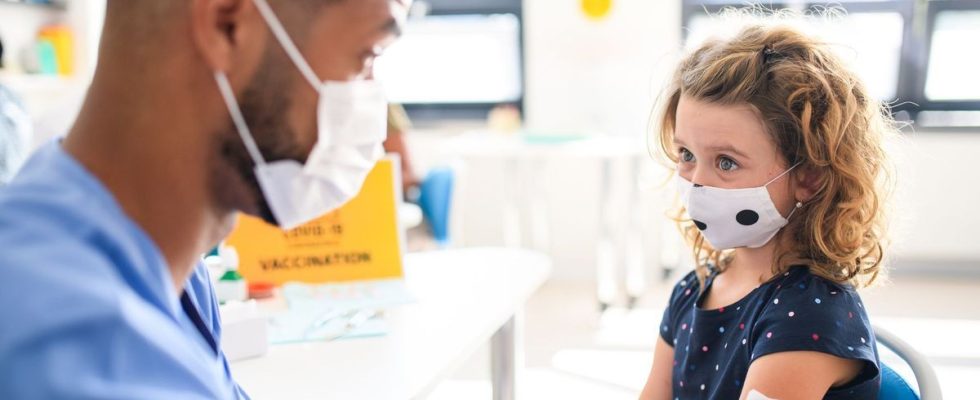Published on
Updated
Reading 2 mins.
According to a recent report by Unicef, in three years, 67 million children have been deprived of one or more vaccines against childhood diseases worldwide. In France, the number of children affected between 2019 and 2021 is 82,000, of which 21,000 would not have received any dose. Several reasons explaining this situation are put forward by the child protection organization and in particular, the “loss of confidence” vis-à-vis vaccination.
According to a report just published by UNICEF, many people around the world have “lost confidence in vaccination” against common childhood diseases in certain regions, such as poliomyelitis or measles, to the point of not benefit their children.
A decrease in childhood vaccinations
According to the UN agency, between 2019 and 2021, vaccination coverage among children fell to 81%, losing 5 points. In total, 67 million children have missed out on vaccines, particularly in Africa and South Asia.
In France, the number of children concerned between 2019 and 2021 is 82,000 with an estimate of 21,000 “zero dose” children. “Children born just before or during the pandemic will soon be past the age at which vaccines are usually given, making it all the more urgent to catch up on the accumulated delays in order to prevent epidemic outbreaks of deadly diseases.” notes UNICEF, which estimates that in the country, confidence in childhood vaccination is down 11.5%
Throughout the world, the organization lists 48 million children who have not received any dose. This observation is of particular concern to the agency, because this decline comes at the end of a decade when “the growth of childhood vaccination was already stagnating”.
Children deprived of vaccines for different reasons
Among the reasons given by Unicef to explain the situation, there is obviously the impact of the Covid-19 pandemic, with “overburdening health systems and reallocating scarce resources“. In addition to this, Unicef also evokes “contexts of fragility” linked to conflicts around the world and finally a “loss of confidence in vaccination“, reported in 52 countries out of 55 studied.
According to Catherine Russell, Executive Director of Unicef, “we cannot allow confidence in routine vaccinations to become another casualty of the pandemic. Otherwise, the next wave of deaths could be more children with measles, diphtheria or other preventable diseases“.
Vaccination, an essential gesture to save lives
The UN agency finally deplores that “more than a decade of advances in routine childhood immunizations have been undermined“and believes that”getting back on track is going to be a challenge.”
Remember the importance of vaccination, which saves an average of more than 4 million children each year. A figure that could increase to 5.8 million lives saved, if we manage to halve the number of children deprived of essential vaccines by 2030 and reach 90% coverage for key life-saving vaccines.
The opinion of Dr. Andreas Werner, pediatrician and president of the AFPA
“The Covid-19 pandemic has had various consequences on health and in particular on vaccination. We have seen it during the H1N1 flu, the population is not reassured by political decisions which seem risky and this is felt on vaccination. And on the contrary, the vaccination obligation introduced in 2018 has reinforced adherence to vaccines, contrary to what one might have thought. And this is true for all categories of vaccines.”
